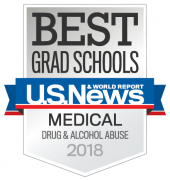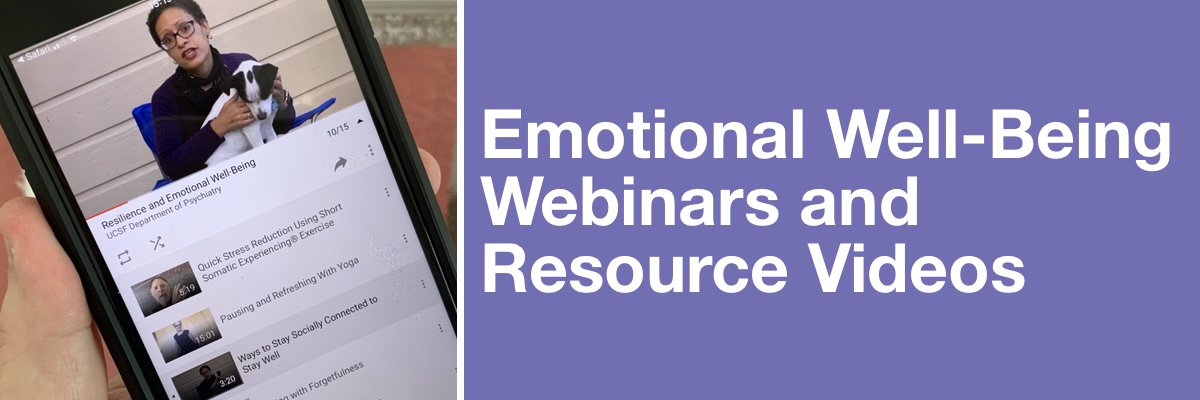
Welcome to the UCSF Addiction Psychiatry Fellowship Program! We are proud to offer a one-year, ACGME-accredited fellowship that provides state-of-the art addiction training, all in the San Francisco Bay area.
Why UCSF? | How to apply | Faculty and fellows | Sites and rotations | Didactics
Why UCSF?
The Addiction Psychiatry Fellowship emphasizes evidence-based treatments – including psychosocial therapies, behavioral therapies, and psychopharmacology – for a range of substance use disorders. Prominent features include:
- Sub-specialty clinics with UCSF faculty supervision (see “Sites and Rotations”)
- One of two national Substance Use and PTSD (SUPT) VA clinics
- Adolescent and family treatment experience
- Training in motivational interviewing with nationally recognized experts
- Psychotherapy training, including supervision with a trained psychoanalyst
- Elective rotation in a private residential addiction treatment center
- Consultation work at two major San Francisco hospitals
- Clinical research, including cutting-edge buprenorphine and cannabis research
- Mentorship within national organizations, including the American Academy of Addiction Psychiatry (AAAP), American Society of Addiction Medicine (ASAM) and California Society of Addiction Medicine (CSAM)
- Opportunities to teach UCSF medical students, residents, and fellows
- All sites located in the San Francisco area, near many local sites and amenities
- The UCSF Addiction Psychiatry fellowship program remains committed to training physicians with a diverse range of backgrounds and life experiences to match the needs of our patients

Applying to the Addiction Psychiatry Fellowship
We have filled our class for the 2023-2024 academic year and are now accepting applications for the 2024-2025 academic year.
Applicants must have completed an ACGME-accredited general adult residency in psychiatry and have a valid, completely unrestricted California medical license, DEA license to prescribe buprenorphine, and California ePDMP login (CURES) prior to the starting date (July 1).
How to apply
Our program uses the Electronic Residency Application Service (ERAS) to process applications. Visit the ERAS website to learn more.
We encourage applicants to submit materials as early in the application period given the fact that interviews are offered on a rolling basis. Recruitment will be conducted virtually. Requests for onsite tours of the campus will be reviewed on a case-by-case basis.
The recruitment timeline for fellows starting July 1, 2024, is as follows:
- July 5, 2023: ERAS applications open
- July 19, 2023: ERAS application released to the fellowship programs
- July–November 2023 (~four months): Interview season
- Nov. 15, 2023: Applicant and program NRMP Rank Order lists due
- Nov. 29, 2023: Match Day
- After Nov. TBA, 2023: Applicants can apply to programs directly
Submission process and deadline
Fellowship selection will occur via the NRMP Match and we will be recruiting up to four fellows. Please submit all application materials to the ERAS website once the application cycle opens and contact program coordinator Alejandra Infante, at [email protected] with any questions.

Leadership team
 |
Tauheed Zaman, MDDirector, Addiction Psychiatry Fellowship Program |
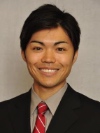 |
Takeo Toyoshima, MDAssociate Director, Addiction Psychiatry Fellowship Program |
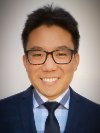 |
Stephen Leung, MDVA Site Director, Addiction Psychiatry Fellowship Program |
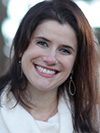 |
Katherine Pier, MDVolunteer Assistant Clinical Professor, UCSF Department of Psychiatry and Behavioral Sciences |
Core faculty
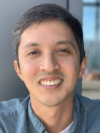 |
Eric Alcid, MD, PhDMedical Director, Opioid Treatment Program |
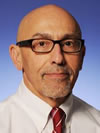 |
Steven L. Batki, MDSenior Consultant, Addiction Psychiatry Fellowship Program |
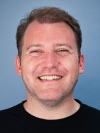 |
Mark Elliott, MDHealth Sciences Assistant Clinical Professor, UCSF Department of Psychiatry and Behavioral Sciences |
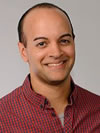 |
Murtuza Ghadiali, MDVolunteer Associate Clinical Professor, UCSF Department of Psychiatry and Behavioral Sciences |
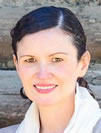 |
Ellen Herbst, MDHealth Sciences Clinical Professor, UCSF Department of Psychiatry and Behavioral Sciences |
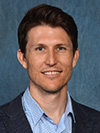 |
Michael Hoefer, MDConsultant, Addiction Psychiatry Fellowship Program |
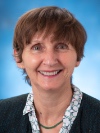 |
Monika Koch, MD, FASAMVolunteer Assistant Clinical Professor, UCSF Department of Psychiatry and Behavioral Sciences |
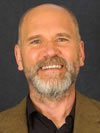 |
John Straznickas, MDHealth Sciences Associate Clinical Professor, UCSF Department of Psychiatry and Behavioral Sciences |
Community supervisors
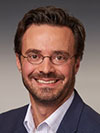 |
Jeffrey Devido, MDVolunteer Assistant Clinical Professor, UCSF Department of Psychiatry and Behavioral Sciences |
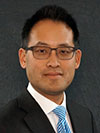 |
David Kan, MD, DFASAMVolunteer Assistant Clinical Professor, UCSF Department of Psychiatry and Behavioral Sciences |
Volunteer clinical faculty
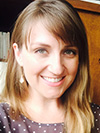 |
Kristine Burkman, PhDHealth Sciences Associate Clinical Professor, UCSF Department of Psychiatry and Behavioral Sciences |
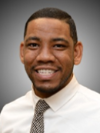 |
Marcus Ellis, PharmD, BCPPSubstance Use/Mental Health Clinical Pharmacist Specialist |
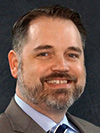 |
Christopher Galloway, PhDHealth Sciences Associate Clinical Professor, UCSF Department of Psychiatry and Behavioral Sciences |
 |
Erin Watson, PsyDHealth Sciences Associate Clinical Professor, UCSF Department of Psychiatry and Behavioral Sciences |
Current and former Addiction Psychiatry fellows
| Year | Fellow (Residency site) |
|---|---|
| 2023-2024 | Rachel Gluck, MD (Emory Univ.) Karin Lavie, MD (Univ. of Chicago) Erik Quan, MD (New York Univ.) Devin Stroman, MD (Univ. of Southern California) |
| 2022-2023 | Raghu Appasani, MD (Univ. of Southern California) Veronica Losso, MD (California Pacific Medical Center) Jason Roley, MD (San Mateo County) |
| 2021-2022 | Eric Alcid, MD, PhD (UCSF) Farhan Ladhani, BA, MD (Boston Medical Center) Stephen Leung, MD (Univ. of Michigan) Jack Van Bezooyen, MD (Emory Univ.) |
| 2020‑2021 | Tiffany Arnold, MD (Louisiana State Univ. Shreveport) Adam Berns, MD (Zucker Hillside Hospital) Isabella Morton, MD, MPH (UCLA) |
| 2019‑2020 | Martha Ignaszewski, MD (Adult: Univ. of Massachusetts • Child and Adolescent: Harvard Univ./Boston Children's Hospital) Jennifer Papac, MD (Stanford Univ.) Christopher Rienas, MD (UCSF) |
| 2018‑2019 | Madison Johnson, MD (Vanderbilt Univ.) Shakevia Johnson, MD (Vanderbilt Univ.) Takeo Toyoshima, MD (UCSF) |
| 2017‑2018 | Christopher Blazes, MD (Albert Einstein Medical Center) Katherine Pier, MD (Mt. Sinai College of Medicine) Bradley Zicherman, MD (Adult: Texas Tech Health Sciences Center • Child and Adolescent: Univ. of South Florida) |
| 2016‑2017 | Elie Aoun, MD (Brown Univ.) |
| 2015‑2016 | Smita Das, MD, PhD, MPH (Stanford Univ.) Pernilla Schweitzer, MD (UCSF) |
| 2014‑2015 | Nicholas Reeves, MD (UCLA) Tauheed Zaman, MD (Harvard Medical School/Cambridge Health Alliance) |
| 2013‑2014 | Zachary Plaut, MD (San Mateo County) Joan Striebel, MD (UCLA) |
| 2012‑2013 | John Nguyen, MD (Cornell Univ.) |

Sites and rotations
The San Francisco VA Medical Center (SFVAMC) and Kaiser Permanente Addiction Medicine & Recovery Services (AMRS) are teaching sites for UCSF, and training is considered a core mission.
Download: Sample Rotation Schedule (.pdf)
SFVAMC rotations
San Francisco VA Medical Center
- Drug and Alcohol Treatment (DAT): treating a range of non-opioid addictions
- Opiate Treatment Program (OTP): buprenorphine, methadone, Vivitrol treatment
- Substance Use and PTSD (SUPT): combat-related PTSD and addictions
- Prescription Opioid Safety Team (POST): consulting on pain/opioid misuse patients
- Addiction Consultation (AddCon): consulting on general addiction patients
- Intensive Outpatient Program (IOP): higher-level three days/week treatment program
- Tobacco Cessation Clinic: behavioral and pharmacologic approaches to cessation
- Elective: half-day/week where fellows select experiences to help develop an understanding of the substance treatment community in the Bay Area. Recent fellow experiences have included the John Muir Adolescent Substance Use Treatment Program, San Francisco Syringe Access Program, San Francisco County Jail Buprenorphine Program, San Francisco Street Medicine Outreach Team to Homeless Encampments, San Francisco VA Ketamine Clinic, and various electives available through Zuckerberg San Francisco General Hospital and Trauma Center.
- Several programs also include groups with opportunities for facilitation training, hospital consultations, and/or opportunities for consulting via video visits to remote patients.
Kaiser AMRS

Kaiser AMRS
Kaiser AMRS provides a spectrum of services, which include medical stabilization and detoxification, day treatment, intensive outpatient treatment, multi-cultural and bilingual groups, and psychiatric treatment of co-morbid conditions. AMRS also provides comprehensive treatment for adolescents and families. As part of a larger medical system, AMRS provides integrated consultative services for patients with obstetrical (pregnancy), chronic pain, HIV or Hepatitis C conditions or those requiring emergency or hospital consultation.
Alta Mira
Alta Mira is a private treatment center for substance use and co-occurring disorders. Fellowship elective experiences here include the opportunity to work alongside faculty in performing patient assessments and treatment in a private residential treatment setting.

Alta Mira
Didactics
Addiction psychiatry fellows have a half day of protected time each Wednesday afternoon for didactics and supervision. These sessions are often led by local and national experts in the field of addiction. Didactics include:
- Addiction seminar: a weekly, 90-minute seminar covering a range of fundamental topics, aimed at a multidisciplinary audience of physicians, psychologists, social workers and trainees
- Education hour: a weekly, 60-minute interactive teaching session including Addiction Board review, case presentations, journal club, talks on advanced addiction topics
- Western Region addiction seminar: a monthly, 90-minute seminar between addiction psychiatry fellows and faculty in the Western Region of the U.S. for networking, career mentoring, and education from experts within specialized areas of addiction
- Faculty teaching: several faculty members provide rotation-specific didactics relevant to their area of expertise throughout the year
- Faculty supervision hour: weekly supervision in career development, advanced addiction psychopharmacology, addiction psychotherapy, addiction private practice, and addiction and forensic psychiatry overlap
- UCSF Grand Rounds & Drug Use Research Group: research presentations on innovative harm reduction strategies, public health interventions, and drug policy
- Addiction medicine collaboration: scheduled didactics, clinical exposure, and community site visits with UCSF Primary Care Addiction Medicine fellows and faculty
- UCSF Addiction Bootcamp lectures available on Youtube
Previous addiction seminar topics include:
- Psychedelics and Substance Use
- Cannabis: Biology to Policy
- The Relationship Between Disability Payments and Substance Use
- PTSD, Alcohol Use Disorder and TBI- Treatment Challenges and Strategies
- Clinical Drug Testing and the Medical Review Officer
- Addiction Group Therapy
- Three Views on Chronic Pain and Opioid Use Disorder
Previous education hour topics include:
- The Intersection of Addiction and Forensic Psychiatry (with forensic and addiction psychiatrist Dr. David Kan)
- Management of Complex Benzodiazepine Tapers
- Motivational Interviewing for the Rushed Physician
- A Research Career in Addiction Psychiatry (with research psychologist Dr. Pennington)
- Journal clubs and complex addiction case presentations


